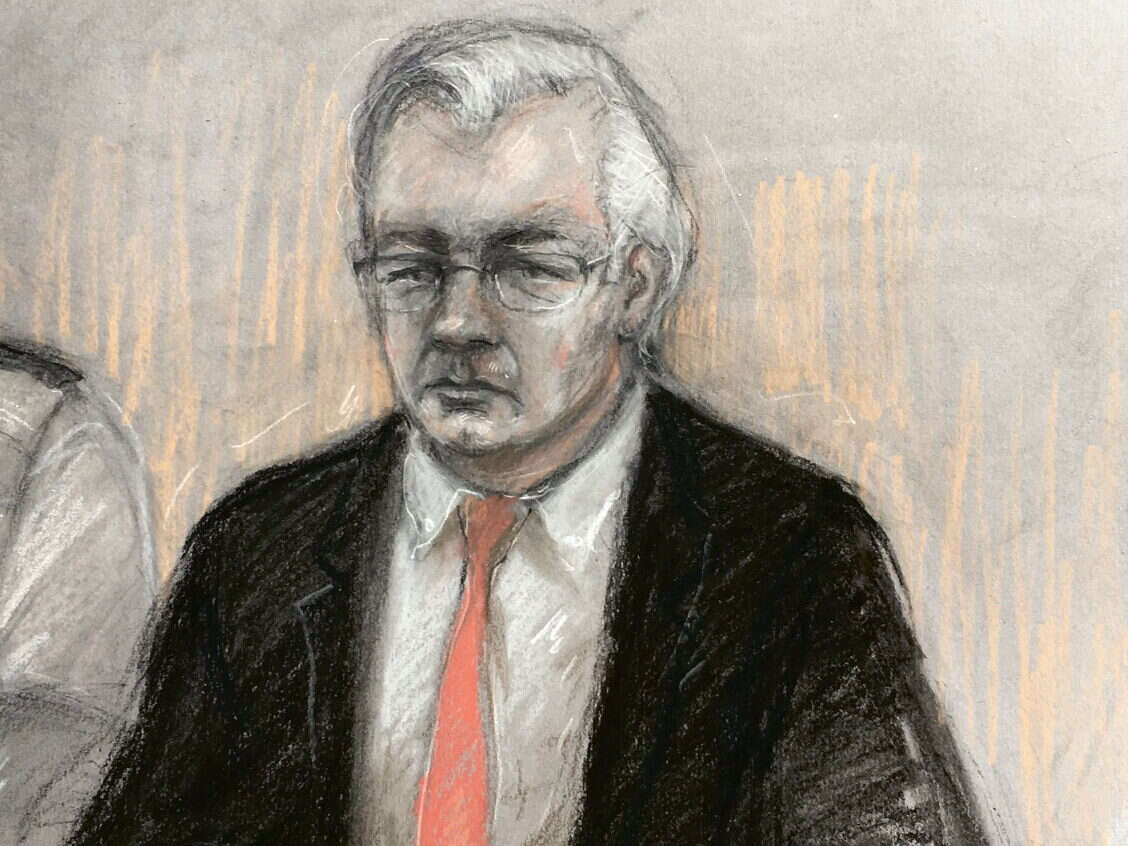
A psychiatrist has told the extradition hearing of Wikileaks founder Julian Assange it is “clear” he is on the autistic spectrum.
Dr Quinton Deeley, a consultant neuropsychiatrist, diagnosed Assange with Asperger’s syndrome after witnessing a two-hour autism assessment and conducting six hours of phone calls with the 49-year-old in Belmarsh prison.
Assange is fighting extradition to the US, where he is facing an 18-count indictment alleging a plot to hack computers and conspiracy to obtain and disclose national defence information.
Giving evidence on Wednesday, Dr Deeley, who also spoke to Assange’s parents during his assessment, said: “To my mind, it’s clear Mr Assange presents as a person with an autistic spectrum condition.
“He’s an intelligent person, he’s learnt to adapt to some of those characteristics.”
The Old Bailey heard Assange refused to complete two components of the autism test, including a task to act out brushing his teeth and answering questions about his daily “self-management” or “self-care” routine because he found them “demeaning”.
James Lewis QC, for the US government, suggested: “It’s highly unusual for people to refuse these tests?”
Dr Deeley, who said he has assessed hundreds of people to determine if they are autistic, replied: “Correct.”
He described Assange as “an intelligent person” who shares the characteristics of “many high-functioning people on the autistic spectrum”, including engineers and computer scientists.
Dr Deeley said he has “difficulty discussing his own emotions”, with a “primary focus on his own thoughts and interests” and noted a “failure to initiate or sustain” conversations.
Assange’s mother, Christine, told the doctor her son as a child “had a preference for solitary play” but made a small number of friendships in his teens with “geeky” boys who shared his interest in computers, the court heard.
The court also heard Assange’s close friend Suelette Dreyfus referred to his “Edwardian style of speaking”, such as talking about Coca-Cola as mead, “like he’s been reading Jane Austen novels”.
She also talked about Assange’s “outrageous behaviour and lack of propriety”, such as moving furniture around in cafes, helping himself to condiments from another table, or going behind the bar to change the music, Dr Deeley said.
Lewis said Assange has hosted a “chat show” on the Russia Today television network, and played footage to the court of a question and answer event where he appeared by video link at London’s Frontline Club.
But Dr Deeley said he was talking about a topic in which he was an expert, which was not incompatible with his diagnosis.
Lewis also raised Assange’s long-term relationships, during which he has fathered five children.
Assange has two children with his current partner, Stella Moris, who he has been with for nine years, the court heard.
Dr Deeley said: “He has had very few lifelong friends and the people who have befriended him have had to make allowances or accepted things which are generally considered to be quirky, unusual or odd aspects of his interpersonal interactions.”
He also told the court: “It is true that many, perhaps the majority of people on the autism spectrum don’t form intimate relationships successfully. There are a minority who do so.
“In Mr Assange’s case, his high standing and celebrity, for some individuals would also make him an attractive figure, an interesting and compelling figure, and that likely contributes in the formation of some of his relationships.”
The hearing continues.
Alan Rusbridger and Peter Oborne have explained why they believe Assange’s case has “worrying implications” for journalists.
Picture: PA Wire/Elizabeth Cook
Email pged@pressgazette.co.uk to point out mistakes, provide story tips or send in a letter for publication on our "Letters Page" blog
